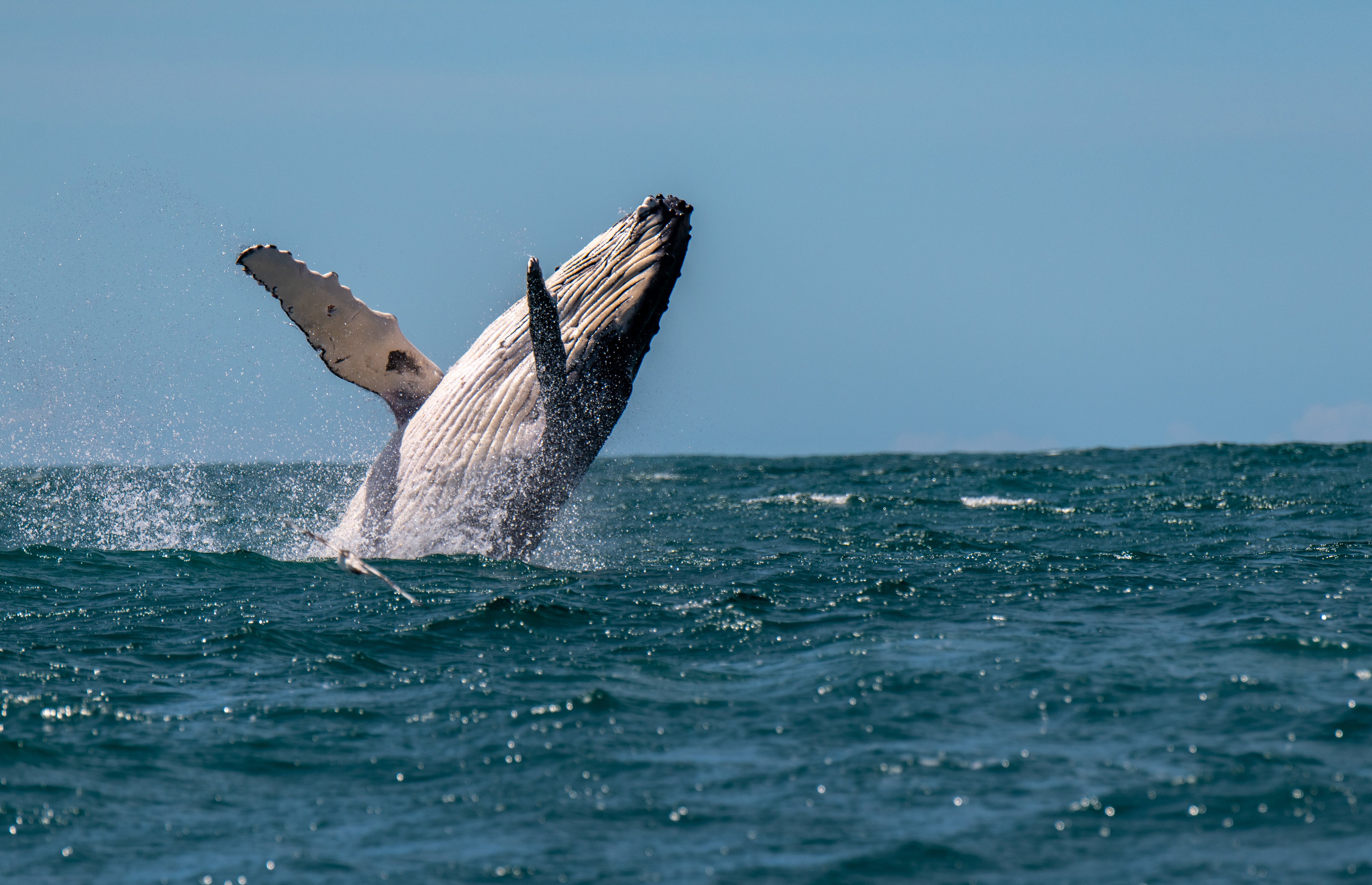Humpback whales could be breeding less amid climate crisis, study says
Researchers observe decline in calf sightings at major summer feeding ground in Canada

Humpback whales could be struggling to reproduce amid rapid environmental change in the world’s oceans, a new study suggests.
Researchers found a significant decline in the breeding success of humpback whales in the Gulf of St Lawrence, a major summer feeding ground for humpback whales in Canada, from 2004-2018.
The study also found year-to-year changes in reproductive success were most closely tied to changes in environmental indicators.
The Gulf of St Lawrence has seen rising sea temperatures and declines in sea ice cover as a result of the climate crisis, according to the research.
This is likely driving large-scale shifts to the region’s ecosystem, affecting food availability for humpback whales, which are top predators, explained Dr Joanna Kershaw, a researcher of marine mammals from the University of St Andrews and lead author of the study, which is published in Global Change Biology.
“It was previously thought that baleen whales could potentially show some resilience to climate change because of their ability to alter their migratory patterns, or switch prey species, for example, if the location or abundance of their main prey changes,” she told The Independent.
“However, this research shows that their ability to respond in these ways may not be enough to prevent their reproductive success from being impacted by environmental change.”
To track changes in reproductive success, the scientists took photographs of mother and calf sightings in the Gulf of St Lawrence from 2004-2018.
The researchers also kept track of the pregnancy rates for female humpback whales. To do this, they took blubber biopsy samples.
By tracking both pregnancy rates and calving success, they were able to ascertain that approximately 39 per cent of identified pregnancies were unsuccessful over the 15-year study period.
“Together, these data suggest that the declines in reproductive success could be, at least in part, the result of females being unable to accumulate the energy reserves necessary to maintain pregnancy and meet the energetic demands of lactation in years of poorer prey availability rather than solely an inability to become pregnant,” said Dr Kershaw.
This inability to accumulate enough energy reserves is likely linked to whales not being able to find enough food in their summer feeding grounds, she explained.

The findings follow another study in December which found that ocean heating could also be affecting the reproductive success of southern right whales in South Africa.
Dr Emma Carroll, author of the southern right whale study and ecologist at the University of Auckland in New Zealand, told The Independent: “The paper adds to the growing body of knowledge on whale ecology that our right whale paper also contributed.
“Humpbacks and southern right whales are both ‘capital breeders’. They feed during summer and that provides enough energy over winter and for pregnancy and lactation.
“Overall, it's the same picture, just a different species and environment. Humans are changing the ecosystem, and whale populations are showing a slow in their recovery [from previous human pressures such as hunting].”
Join our commenting forum
Join thought-provoking conversations, follow other Independent readers and see their replies
Comments
Bookmark popover
Removed from bookmarks